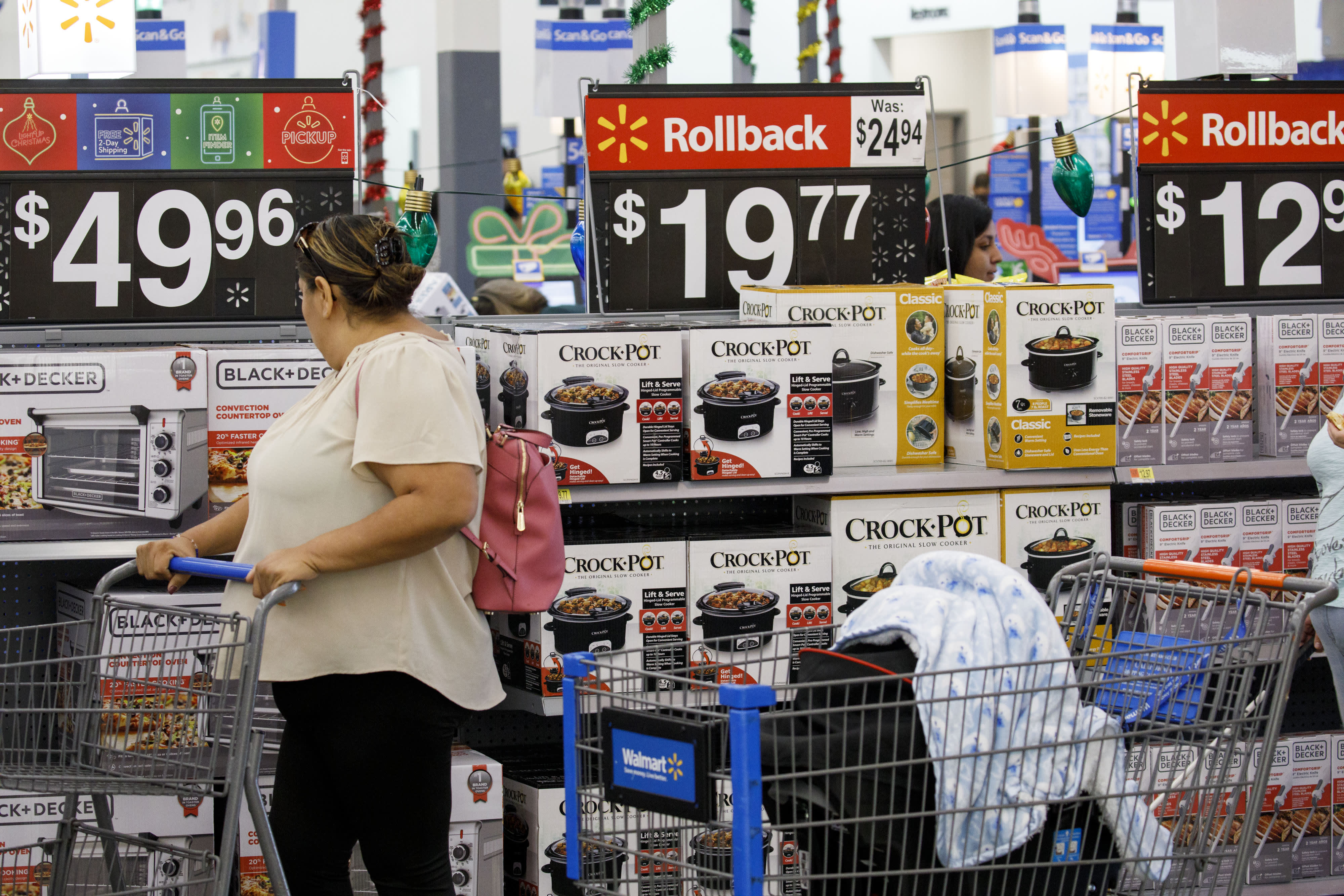A customer browses products at a Walmart store in Burbank, California
Patrick T. Fallon | Bloomberg | Getty Images
U.S. consumer sentiment fell for a third straight month as people weigh the coronavirus pandemic and the possibility of an economic re-opening, data released Friday by the University of Michigan showed.
The consumer sentiment index fell to 71.8 in April from 89.1 in March. Economists polled by Dow Jones expected a print of 67. That decline comes after a sharp drop in current economic conditions.
The coronavirus pandemic has led to more than 26 million jobs being lost over the past five weeks. That’s more than the employment gains since the Great Recession. Those sharp job losses have sparked some calls for re-opening the economy and ease stay-at-home regulations imposed to curb the virus spread.
“Consumers’ reactions to relaxing restrictions will be critical, either putting further pressure on states to reopen their economies, or exerting added pressure to extend the restrictions even if it has negative consequences for economic prospects,” said Richard Curtin, chief economist for the Surveys of Consumers, in a statement. “The risks associated with these decisions are not equally balanced, with an incorrect decision to reopen having serious repercussions.”
“The necessity to reimpose restrictions could cause a deeper and more lasting pessimism across all consumers, even those in states that did not relax their restrictions,” Curtin added.
This is breaking news. Please check back for updates.
Subscribe to CNBC PRO for exclusive insights and analysis, and live business day programming from around the world.
